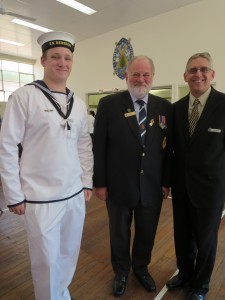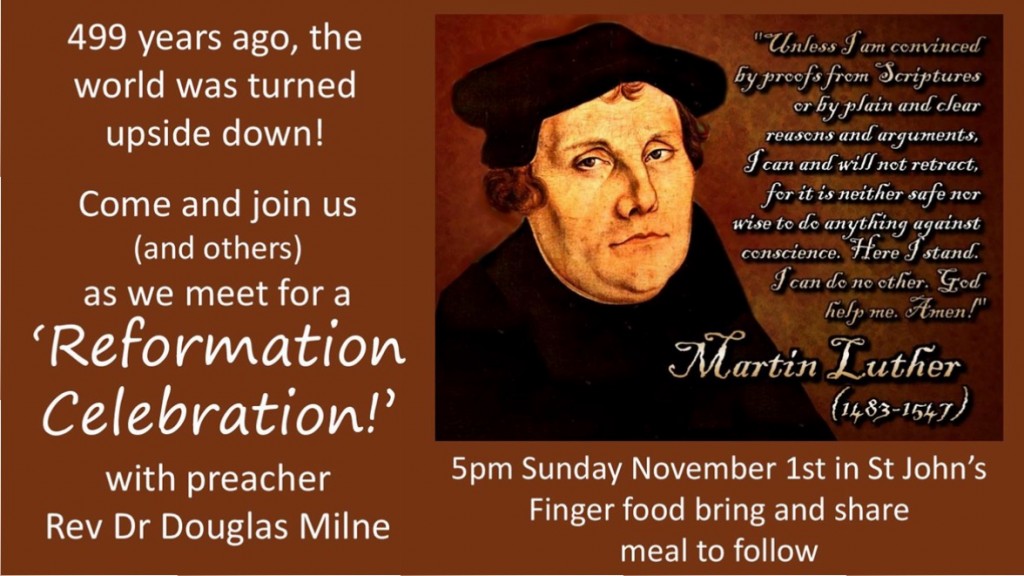
Leading Seaman Patrick Daniels, Russell Pettis Lieutenant RANR Rtd and Rev Philip Burns at morning tea
Our Annual Naval Service (held this morning) was attended by members of the ex-Navalmen’s Club of Bendigo and District, along with their special guest, Russell Pettis, Lieutenant RANR Rtd, National President of the Naval Association of Australia, and Naval Cadets of the TS Bendigo. Rev Philip Burns preached on Jonah 1:1-17 (you can listen to or download the message, just to the right of this post) and a yummy morning tea in the hall was enjoyed by all!
